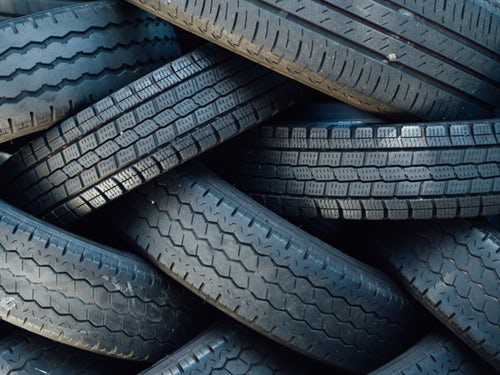
Airless Tyres: Leading the Way Towards More Sustainable Motoring
By Motor Match • 04/02/2025
Find out more about how airless tyres could revolutionise the motor industry for both drivers and manufacturers.
Tyres are one of the most important components on a car and it’s important we look after them to ensure our car runs smoothly. With the race to sustainability very much on, manufacturers are well prepared to reduce their carbon footprint - and this could now transition into tyres too. Tyres play a huge role in the efficiency and manoeuverability of a vehicle, so what if we told you, there are airless tyres that could help improve both of these? Read on to find out more about how airless tyres could revolutionise the motor industry for both drivers and manufacturers.
What are airless tyres?
Airless tyres (also known as flat-free or non-pneumatic tyres) look a bit different to your standard tyre that you’re used to - but it’s all for a good reason. These tyres don’t need any air to inflate - they are designed to flex to the car’s weight and offer added support for every eventuality. The design is almost that of meshing - they are strong spokes around the wheel that are interlocked together.
It’s easy to think of run-flat tyres, but airless tyres shouldn’t be confused as such - run-flat tyres are capable of travelling at a maximum speed of 50mph for up to 50 miles, even if you’ve got a flat tyre. Airless tyres don’t have any air in them at all which means they are free from getting any kind of puncture - perfect for saving money on replacing them every so often and staying safe on the road at all times.
Airless tyres are currently used on vehicles such as golf buggies and lawnmowers, so you may have been using them without even realising. This decreases the need for replacement, especially for golf buggies, as the golf centre wants to avoid spending lots of money on new tyres all the time.


What are the benefits of airless tyres for cars?
Should airless tyres become mainstream, they could add a lot of value to your car and keep the cost of repair down in the long run:
No flat tyres
Flat tyres could be a thing of the past with the new airless tyres. Because of their design, they are resistant to punctures and bulging. You don’t need to sit around waiting for rescue or to dig out the puncture repair kit - you can continue cruising along. They have even been rigorously tested by Goodyear and although it was discovered the spokes on the tyre broke or deformed, they were still able to perform safely afterwards. Potholes? No problem.
No need for a spare
Spare tyres used to be standard on any car you bought, but they have been replaced with tyre repair kits. Airless tyres remove the need for a spare tyre - as they physically cannot experience punctures. This also increases space in the boot for luggage or cargo - ideal for larger families with extra belongings to take with them.
They help businesses save money
Many businesses rely on vehicles to keep things running smoothly, especially those in construction, agriculture or distribution. If there is a failure in the tyres on any of their vehicles, this could lead to costly repairs and lost revenue. There are plenty of other industries that rely on vehicles, such as taxi and bus services and it could be the loss of someone's livelihood. Airless tyres can help reduce the downtime and obstruction to other road users. However, they can be expensive to buy in the first instance.
They last longer and require less maintenance
These tyres could last up to three times as long as your conventional tyre, meaning that they won’t need to be replaced as often. Tyre pressures also won’t need to be adjusted, meaning that you can continue to travel along without excessive wear and with improved fuel economy. They are, however, very noisy when driving along.


Less CO2 emissions
When a car is being driven, the tyre goes through what is known as rolling resistance - this is when energy is lost when a tyre flexes on contact with the road surface. The harder the engine works, the more fuel it will use and the more fumes it will produce. It has been claimed that airless tyres can produce more efficiency because of the reduction of rolling resistance. It should be noted that not all airless tyres reduce emissions.
They can be recycled
Many manufacturers have claimed that the designs of airless tyres are made from recycled materials and can also be recycled at a later date to make new airless tyres. Bridgestone will be the first tyre manufacturer to make this a reality, using what they have called a ‘cradle-to-cradle’ system. Reducing the amount of waste produced with old tyres can help the UK’s aim to become a more sustainable country.
Buy tyres with Swansway
Whilst these tyres aren't mass-produced, they could become the future of tyre manufacture - a more affordable alternative to the tyres we’re used to. Take a look at the range of services we offer regarding tyres - from free tyre checks to fitting your new tyres, we’re here to help. Looking for a new car? Take a look at the range of new and used vehicles we have available for a test drive today. If you’re unsure what you're looking for or would like more information about one of the vehicles you see on our website, don’t hesitate to get in touch with one of our team and we’d be happy to help you.
You may also like…